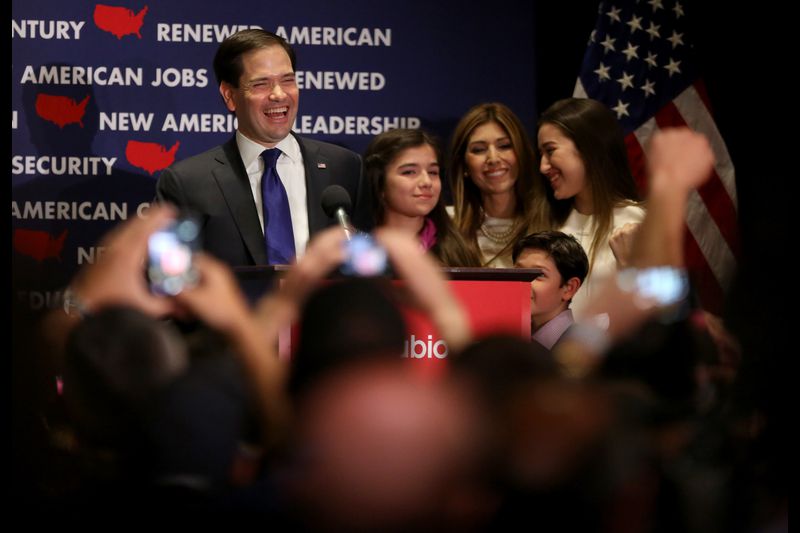Building state capacity isn’t an ism.
The Market Won’t Fix our China Problem

Actual policymakers have to do that.
Libertarianism is a bizarre and crumbling ideology that assumes power is absent from economic relationships. Two symbols of its fall are the rise of telecom maker Huawei, as well as the election of Donald Trump. Huawei reveals that being able to build real things matters more than financial markets, and Trump’s election revealed Americans didn’t like libertarianism and its technocratic and progressive analogues.
Senator Rubio, backed by Michael Lind, is making the case that we should replace libertarianism with industrial policy, something Democrats toyed with in the early 1980s.
I largely agree with one key assumption of Lind’s. He argues that an approach which identifies specific market failures is an acceptance of the ideological assumption that markets are by default successful and efficient. He notes American success with a variety of institutional designs, such as public weapons production and the post office. “The use of private, public, or nonprofit enterprises to promote national goals is a matter of judgment and choice,” he writes.
I would go further. Our entire economic order is a set of legal structures underpinned by state power. There is no enforcement of contracts without a state waiting to do so, and the dollar and financial system is backed by the sovereign power of the U.S. Markets and business institutions are contingent. We choose which kinds of business practices are legal and which ones aren’t, and always have.
We also choose where to finance basic research; our electronics industry came out of the publicly funded Radiation Laboratory of World War II, and the government has organized much of our scientific and technology advances and deployment, often through regulatory policy and antitrust actions to force large corporations to allow smaller enterprises to commercialize key intellectual property.
In other words, the very concept of being pro-market is incoherent. The market isn’t one thing, it’s just a descriptive term meaning a place where exchange happens. The terms and conditions of those exchanges are flexible and can embed different values. A derivatives market with no public rules, where middlemen can create more instruments to trade based on pure belief, has little in common with a market where people exchange real goods that must be built or grown with effort.
And this is where I part ways with Lind and Senator Rubio. Both make the same mistake that neoliberals do, which is to remove agency over our institutions from the realm of man by denying they are in fact institutions. For instance, Rubio argues, “The market may say short-term profits justify adherence to the requirements China places on our companies.” But the market doesn’t actually say anything of the sort. Policymakers do.
We chose to organize our trade with China with a whole variety of policy instruments, everything from Bill Clinton’s overriding of Pentagon security concerns for the export of sensitive missile technology to China to George W. Bush’s refusal to address currency manipulation. Similarly, when we chose not to trade with the USSR and China during the Cold War, somehow then the market was mute.
Lind is more flexible, but he too falls into this trap when he asks, “But what is wrong with being pro-business instead of pro-market?” That too makes little sense. The markets in which we both built up and then destroyed Bell Labs were structured by policymakers with a 1913 antitrust case, regulations throughout the 1920s and 1930s, a 1956 antitrust consent decree, FCC rate regulation, financial deregulation, the Telecommunications Act of 1996, merger law, and a refusal to address predatory pricing from Chinese telecom makers in the early 2000s.
By portraying the market as some sort of coherent object, Rubio and Lind imbue it with a force and a philosophy that do not exist. I suspect Lind is playing a rhetorical trick. By positing that the market and the public good are in tension, he can make the case for the institutional form of large monopolies. But as he notes, the American system has been one with a variety of institutional designs, based largely on pragmatic and detailed governance choices. Under the siren song of libertarianism, we’ve trashed our governing competence for forty years. Now we have woken up to a world of concentrated reckless power, involving everything from Chinese autocracy to Mark Zuckerberg.
It’s important to break with libertarian ideas and begin re-centering politics on how to structure commerce to preserve liberty. But one of those libertarian ideas, unwittingly peddled by Lind and Rubio, is that “The Market” is one discrete agent with a unified form. We should instead begin to see markets as tools of self-governance, tools whose rules can be organized so we might enjoy liberty, or—as we have wrongly chosen for forty years—forsake it.
The American Mind presents a range of perspectives. Views are writers’ own and do not necessarily represent those of The Claremont Institute.
The American Mind is a publication of the Claremont Institute, a non-profit 501(c)(3) organization, dedicated to restoring the principles of the American Founding to their rightful, preeminent authority in our national life. Interested in supporting our work? Gifts to the Claremont Institute are tax-deductible.
Don’t remake America: reinvent it.
Time is pressing to turn our tech Titanic around.
America thrives best free from market worship.
The fix demands more than blame for Beijing.
Congress Should Join the Discussion Senator Rubio Has Begun.






